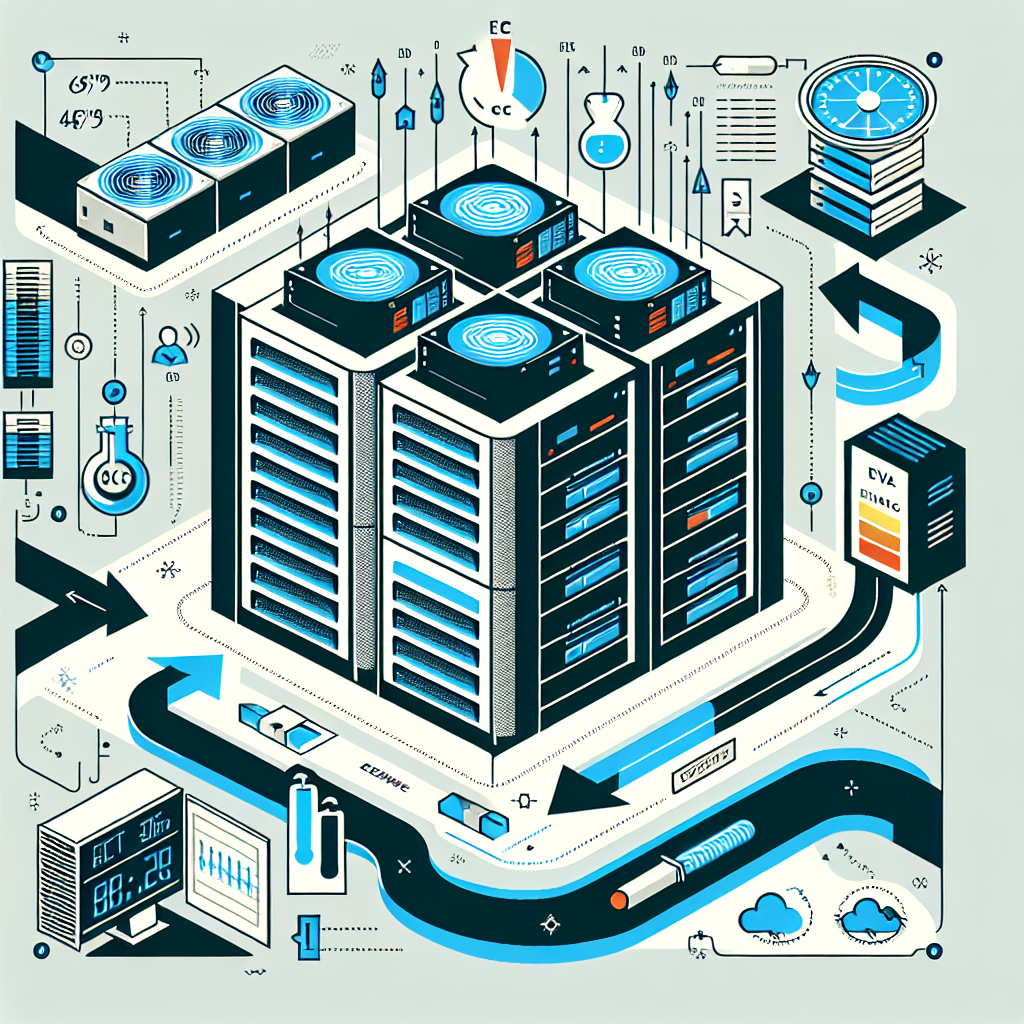Your cart is currently empty!
Understanding the Impact of HVAC on Data Center Energy Consumption

Data centers are crucial components of modern-day business operations, housing the servers and networking equipment that support the storage and processing of data. With the increasing reliance on digital technologies, the demand for data centers continues to grow, leading to a significant increase in energy consumption. One of the major contributors to energy consumption in data centers is the heating, ventilation, and air conditioning (HVAC) systems that are necessary to maintain optimal operating conditions for the equipment.
HVAC systems play a critical role in data centers by controlling the temperature and humidity levels within the facility. Data centers are highly sensitive to fluctuations in temperature and humidity, as these can cause equipment to malfunction or fail. The HVAC systems in data centers are designed to maintain a consistent temperature and humidity level to ensure the reliable operation of the equipment.
However, the energy consumption of HVAC systems in data centers can be substantial. According to research conducted by the U.S. Department of Energy, HVAC systems can account for up to 40% of the total energy consumption in a typical data center. This high energy consumption not only contributes to operational costs but also has a significant environmental impact, as data centers are responsible for a large portion of global energy consumption and carbon emissions.
Understanding the impact of HVAC on data center energy consumption is crucial for data center operators looking to improve the energy efficiency of their facilities. There are several strategies that can be implemented to reduce the energy consumption of HVAC systems in data centers:
1. Implementing advanced cooling technologies: Data center operators can invest in advanced cooling technologies, such as air-side economizers, evaporative cooling, or liquid cooling, to reduce the energy consumption of HVAC systems. These technologies are more energy-efficient than traditional air conditioning systems and can help lower overall energy consumption.
2. Optimizing airflow management: Proper airflow management is essential for maintaining optimal operating conditions in data centers. By implementing hot and cold aisle containment systems, data center operators can improve airflow efficiency and reduce the workload on HVAC systems.
3. Utilizing temperature and humidity sensors: Installing temperature and humidity sensors throughout the data center can help operators monitor and adjust HVAC settings in real-time to maintain optimal operating conditions. This can help reduce energy consumption by ensuring that HVAC systems are not overworking.
4. Implementing energy-efficient HVAC equipment: Upgrading to energy-efficient HVAC equipment, such as variable speed drives, energy recovery systems, and high-efficiency filters, can help reduce the energy consumption of HVAC systems in data centers.
By understanding the impact of HVAC on data center energy consumption and implementing energy-efficient strategies, data center operators can reduce their environmental footprint and lower operational costs. Improving the energy efficiency of HVAC systems is not only beneficial for the environment but also for the long-term sustainability of data center operations.

Leave a Reply